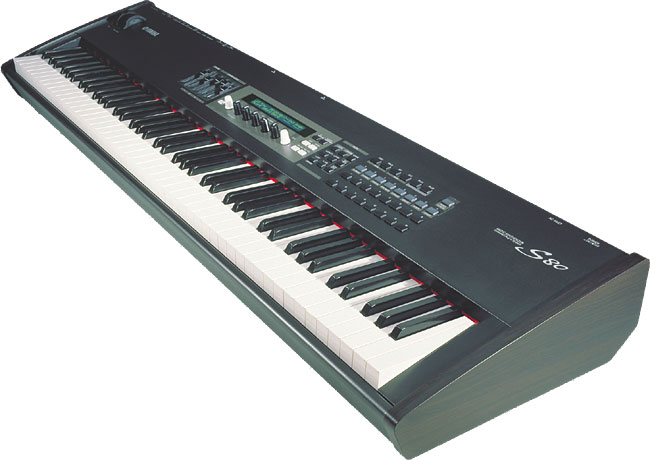Piano Keyboard Action: Digital vs Synth

Modern electronic keyboards inevitably become a common commodity among modern musicians. In particular, those who wish to play piano music, for, few can afford the expense and housing for a acoustic (“real”) piano.
For those who want to play piano music, organ-like keyboards or 5-octave keyboards are immediately out of the question. Among the 88-weighted keyboards, usually they can be divided into two categories: digital pianos, and weighted keyboards. (the latter is usually synth or sometimes called “controller”)
The distinctions among the two are often features. Digital Piano, as its name suggests, tries to emulate the (acoustic) piano as much as possible, and is commonly catered for classical piano students. These keyboards often have only a dozen of sound varieties, have some recording ability, build-in speakers, transposition, metronome. In short, it is positioned to be a make-do for a real piano, where one can just sit in front of it and play piano without fussing about technology. On the other hand, the “controller” type of keyboard are often catered to performing pop musicians. Often they are synths, allowing you to generate all kinds of artificial sounds. They often have extra controlling devices such as pitch bend wheels and modulation wheels, sometimes after-touch sensitivity or touch-strip or joystick. Often they do not have speakers build-in, and the features are open-ended. In short, these types are geared towards explorers.
An interesting question concerning the two is their key actions. They all employ modern technology that captures how fast/hard a key is pressed, in the smallest space possible, without elaborate fulcrum/hammer mechanism as in acoustic pianos. However, keyboards with the “digital piano” moniker do have a slight trend away from simply weighted-keyboard controllers. There is a tendency for digital pianos to emulate the action feel of acoustic piano as closely as possible. That is, as one presses the key, one should feel as if there is a hammer behind it even though there is not. Also, out of necessity the acoustic pianos have lopsided weight. That is, the keys have more resistance on the bass side of the keyboard. This is a necessity because the bass notes require heavier hammers. Electronic keyboards do not have this contingency. However, “digital pianos” simulate it nevertheless. Thus, certain models will advertise their keyboard being “graded weight” or as Yamaha puts it “Graded Hammer Effect” and people buy that. Here we can see that as technology removes restrictions, sometimes people want it back out of custom.
On the other hand, the synth/controller type of keyboard's key actions are forward-looking. These category of keyboards usually do not try to emulate acoustic piano feels as a goal, but in fact explore all new possibilities. It is here we see all types of rather weird key feels. For example, the Alesis Q8.1 has 88 solid-looking keys but they are as light as organ keyboards. No acoustic pianos can be like that. The Yamaha s80 synth i recently tried, has this very weird feel to it. Its 88-weighted keys have after-touch. Once a key is pressed down, one can kind of force it further down noticeably as if dealing with a compressed sponge. This i suppose provides better tactile sensation for organ-type music that makes uses of after-touch. As a classical piano-music player, i find it weird but don't necessarily dislike it.
There is a common critical question for piano-music playing shoppers especially classical piano music playing students: whether they can easily transfer their skill or finger habits to some real piano. Thus we see these buyers seriously debate on the key action feel of brand x vs y, and this being lively discussed among existing owners or piano connoisseurs. I think, as long as the weighted-keyboard has a resistance roughly comparable to that of acoustic piano, then it will do just fine. Perhaps aspiring classical pianists or aspiring parents fear of buying the wrong keyboard that'd ruin their path to a fine career in Carnage Hall. If that is the case, i think one should aspire to buy a “real” acoustic piano without further ado.
Piano Keyboard Action
- Piano keyboard actions: Acoustic vs Modern Weighted
- Weighted keyboard actions: Digital Piano vs Synthesizer
- Weighted keyboard actions: a comparison of 4 digital keyboards
- Piano keyboard actions: MP9000 problems and misc notes
- Digital Chromatic Abruption
- Piano Scale Practice; Liszt Transcendental Etude #12
- Kawai MP9000 Key Action
- Chopin vs Liszt